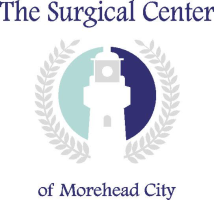Pancreatic Cancer
The pancreas is a long, flat abdominal organ that lies horizontally behind the lower stomach. It measures about six inches in length and looks somewhat like a pear lying on its side. The pancreas actually functions as part of two separate systems of the body: a digestive exocrine gland and a hormone-producing endocrine gland. The pancreas produces:
- enzymes that assist in digestion
- insulin and glucagon that helps regulate the metabolism of sugars
The glandular tissue of the pancreas surrounds many small ducts that drain into the main pancreatic duct which carries digestive enzymes into the duodenum (the first section of the small intestine).
Pancreatic cancer begins when cells in the pancreas develop mutations in their DNA. These mutated cells divide uncontrollably and can spread rapidly to other parts of the body. They also live longer than regular cells. Pancreatic cancer is known as pancreatic adenocarcinoma or pancreatic exocrine cancer. In rare cases, cancer can form in the hormone-producing cells of the pancreas, and this is called islet cell cancer or pancreatic endocrine cancer.
Risk Factors
- Factors that may increase your risk of pancreatic cancer include:
- Age—almost all patients are over the age of 45.
- Personal or family history of pancreatic cancer
- Smoking
- Gender—men are 30 percent more likely to develop pancreatic cancer than women.
- African-American descent
- Obesity—being obese increases your risk for pancreatic cancer by 20 percent.
- Chronic inflammation of the pancreas (pancreatitis)
- Diabetes
- Family history of genetic syndromes that can increase cancer risk, including a BRCA2 gene mutation, Lynch syndrome and familial atypical mole-malignant melanoma (FAMMM)
- Workplace exposure to certain chemicals
Symptoms
Signs and symptoms often do not appear until pancreatic cancer is advanced. Signs and symptoms of pancreatic cancer include:
- Upper abdominal pain that may radiate to your back
- Yellowing of your skin and the whites of your eyes (jaundice)
- Loss of appetite
- Weight loss
- Depression
- Blood clots
If you experience any of the symptoms above, call your doctor to make an appointment. There are several other conditions and disorders that can cause similar symptoms, but your doctor can help answer your questions and schedule any testing that may be necessary.
Diagnosis
Your doctor may choose to schedule some tests to evaluate your symptoms. Imaging tests such as a pancreatic ultrasound or a CT scan of the abdomen can assist in diagnosing pancreatic cancer. Endoscopic ultrasonography (EUS) uses an ultrasound device connected to a flexible tube that is inserted into the mouth and is about 85 to 90 percent accurate in diagnosing the disease. Endoscopic retrograde cholangiopancreatography (ERCP) uses an endoscope to inject a dye into the pancreas and takes x-ray images. The scope can also extract a small sample from the pancreas for biopsy to be tested for cancerous cells.
If testing reveals that you have pancreatic cancer, you may be referred to an oncologist, a radiation oncologist and a surgeon who specializes in digestive conditions.
Questions for your Doctor
A diagnosis of pancreatic cancer is understandably unsettling and life-changing. You will likely have many questions for your doctor, so it is best to have questions prepared so you can make the best use of your appointment time. You may want to ask some of the following questions:
- In what part of the pancreas is my cancer located?
- How far has the cancer spread?
- What are my treatment options?
- What are the benefits, risks and side effects of each treatment option?
- In your opinion, what is the best treatment option for me?
- What is the overall goal of my treatment in my particular case?
- Am I eligible for a clinical trial?
Treatment
If pancreatic cancer has not spread beyond the pancreas, it can be treated with surgery. Sometimes, only part of the pancreas needs to be taken. Known as the Whipple procedure, your surgeon will remove the tumor and leave as much of the functioning pancreas as possible. If the entire pancreas must be removed, your doctor will talk to you about lifelong replacement enzymes and hormones that must be administered after surgery.
Sometimes, chemotherapy and radiation will be included in your treatment, but this depends on the stage and type of pancreatic cancer. These treatments may be helpful in:
- Shrinking the tumor to make surgery possible
- Relieving symptoms
- Extending survival time
Prevention
There are no specific ways to prevent pancreatic cancer, but you can make some lifestyle changes to decrease your risk of developing this disease. Cigarette smoking doubles your risk for pancreatic cancer, so if you are a smoker, please get assistance to quit smoking. Resources are available at the American Lung Association. Obesity also puts you at higher risk, so talk to your doctor about safe ways to lose weight through proper diet and safe exercise.
Certain chemicals also increase your risk for cancer as well as pesticides and dyes. If you are exposed to chemicals and fumes on a regular basis, take precautions to avoid unnecessary exposure.
